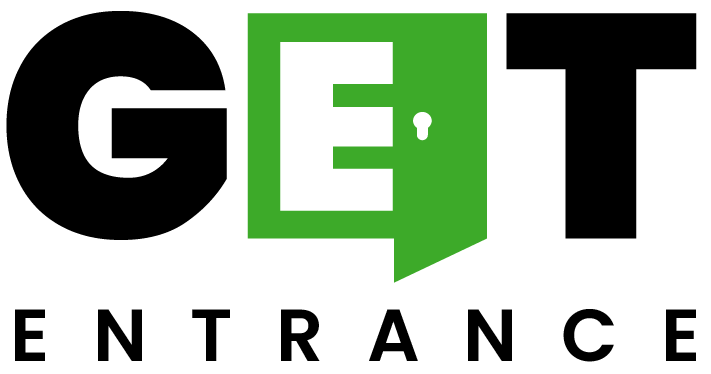Understanding the Pain Points of Students After Completing 12th Grade

Completing 12th grade is a significant milestone for students, marking the end of their high school journey and the beginning of a new chapter in their lives. While it is undoubtedly a time of celebration and excitement, it also comes with its fair share of challenges and uncertainties. As the graduation caps are thrown into the air and the tassels are shifted to the left, students are faced with a myriad of pain points that can often leave them feeling overwhelmed and unsure of their next steps.
In this blog, we will delve into the common pain points experienced by students after completing 12th grade, shedding light on the struggles they encounter as they transition into adulthood and higher education or the workforce. Understanding these pain points is crucial for educators, parents, and mentors alike, as it allows us to provide the necessary support and guidance to help these young individuals navigate through this transformative phase in their lives.
Student Pain Points After 12th
When it comes to further study and career decisions, students completing the 12th class may encounter several pain points and challenges like below:
- Uncertainty about Future Plans: Many students feel unsure about which career path to pursue or what course to study in college. The lack of clarity can lead to anxiety and indecision.
- Pressure to choose the “Right” Path: There is often a societal expectation to choose a career that is considered prestigious or financially stable, which can be overwhelming for students who may have different interests and passions.
- Financial Constraints: The cost of higher education and the financial burden it may place on the student or their family can be a significant concern.
- Competitive Entrance Exams: Many fields and professional courses require students to clear competitive entrance exams, adding to the pressure and stress during the preparation phase.
- Balancing Passion and Practicality : Students may struggle to strike a balance between pursuing a career they are passionate about and considering practical factors like job opportunities and stability.
- Lack of Information and Guidance: Limited access to information about various career options, college admissions, and scholarship opportunities can hinder the decision-making process.
- Parental and Peer Influence: External influences, such as parental expectations or pressure from peers, can sometimes steer students towards career paths that may not align with their true interests and strengths.
- Fear of Failure: The fear of making the wrong choice or not succeeding in their chosen field can lead to self-doubt and hesitation.
- Skills Gap: Some students may worry about having the necessary skills and qualifications required for their desired career, especially if they are considering a field different from their academic background.
- Adapting to the Job Market: Concerns about the rapidly changing job market and technological advancements may make students uncertain about which career will remain relevant in the future.
- Work-Life Balance: Students might be concerned about finding a career that allows for a healthy work-life balance and aligns with their personal priorities and values.
- Exploring Non-Traditional Career Paths: There might be apprehension about exploring unconventional or non-traditional career options that may not be widely understood or accepted by society.
Addressing these pain points involves providing comprehensive career counseling, access to relevant information, mentorship, and support networks to help students make well-informed decisions about their further study and career paths. It’s essential to encourage them to explore their interests, strengths, and aspirations while considering practical aspects to find a fulfilling and successful career journey.
Solutions to Address The Students Pain Points After 12th
Here is a list of solutions to address the pain points and challenges faced by students completing the 12th class in terms of their further study and career decisions:
- Career Counseling and Guidance: Provide students with access to career counseling services that can help them explore their interests, strengths, and career options. Professional guidance can assist in making informed decisions about future plans.
- Encouragement of Individuality: Encourage students to pursue career paths that align with their passions and interests, rather than succumbing to societal pressure. Emphasize the importance of personal fulfillment in career choices.
- Scholarships and Financial Aid: Offer information about available scholarships and financial aid programs to alleviate the financial burden of higher education for deserving students.
- Exam Preparation Support: Provide resources and coaching to help students prepare for competitive entrance exams, reducing stress and boosting their confidence during the preparation phase.
- Mentorship Programs: Establish mentorship programs where experienced professionals can guide and inspire students in their chosen fields, fostering a sense of direction and purpose.
- Career Workshops and Seminars: Conduct workshops and seminars to expose students to a wide range of career opportunities, college admissions processes, and job market trends.
- Self-Discovery Exercises: Organize activities that promote self-discovery and self-awareness, helping students identify their strengths and interests to make more confident career choices.
- Open Communication with Parents: Encourage open communication between students and their parents to ensure that career decisions are based on mutual understanding and support.
- Building Resilience and Self-Confidence: Implement programs that build students’ resilience and self-confidence to help them overcome the fear of failure and make bold career choices.
- Skill Development Programs: Offer skill development programs to bridge the gap between academic learning and practical job requirements, empowering students with the necessary skills.
- Future-Focused Education: Adapt the education system to align with the changing job market, focusing on equipping students with skills that will remain relevant in the future.
- Work-Life Balance Support: Promote the importance of work-life balance and well-being, helping students find careers that accommodate their personal priorities and lifestyle choices.
- Exposure to Non-Traditional Careers: Arrange exposure sessions for non-traditional career paths, allowing students to explore unconventional options with a better understanding of their potential.
By implementing these solutions, educational institutions and career advisors can support students in making well-informed decisions, easing their transition into higher education and the professional world.
Final Thought on Student Pain Points After 12th
Are you a student facing uncertainty and challenges in making crucial career decisions after completing the 12th class? We understand the importance of finding the right path that aligns with your passions and aspirations. Our professional career counseling and guidance services are here to empower you in making informed choices for a successful future. From personalized mentorship to exploring a wide range of career options, we are dedicated to helping you unlock your true potential. Take the first step towards a fulfilling career by clicking here to learn more about our services and embark on a journey of self-discovery and growth. Your future awaits!


